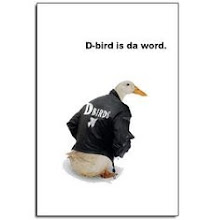This blog entry began with one newspaper article, and has grown like Topsy; I've added more links to ebookery as I've found them.
Sydney Morning Herald columnist Elizabeth Farrelly had an opinion piece published at Easter about her Kindle e-reader. Her major criticism (and it's my criticism too, in relation to e-books and audiobooks): the limited availability of up to date copyright content to Australian-address customers. Amazon won't tell you ahead of time what you can't get here (thousands fewer titles than to US subscribers), and Audible hides lots if you log in as yourself (ie as a subscriber in Australia - I'm on the point of cancelling my Audible subscription for precisely this reason, unavailable content. I'm not talking about, for example, audiobooks that don't exist - the recordings do, and if I was in the US I could buy them).
Publishers, authors and agents need to get themselves sorted on rights for audiobooks and e-books so that we in Australia can read and listen to the same range as readers/listeners in the UK and US. It's crazy that you can buy a print copy (eg of a multimillion bestseller) but not, for example, a Kindle copy if you're an Australian-address buyer. Their choices are sabotaging our use of this technology, and limiting their profits (a very odd thing in a capitalist world, imho). Buyers are willing to pay for copyright content, but publishers, authors, agents (and Amazon - if I was i/c there I'd be chivvying the others like crazy) are just saying no. Do they realise their daftness? Into the vacuum they create the pirates are, I'm sure, oh-so-willing to provide an alternative - with no profits to authors, agents, publishers or Amazon. Daft.
A quote:
But I did want something to read. Something compressed and intelligent for the plane or the swag. But apart from The Spectator and The New York Times, it's like an airport bookstore with the good bits removed. Kindle Australia has four readable books. Three Stieg Larssons and Stoker's Dracula. I've read them.
Everything else is called Midnight in Madrid or How to Make A Million Bucks with a Gleaming Smile and a Flat Belly. You can't search alphabetically, and much as Amazon vaunts its relationship with publishers you can't get Pete Dexter or Tim Winton or A.A. Gill and if you search Carl Hiaasen you get three Lee Goldberg westerns and a self-helper called Active Senior Living.
and her rather nice final line:
Hmm. Burnt by kindling. Hot cross you, April Fool me.
Read all about it: Easter: when a Kindle surprise turns into a curate's egg, by Elizabeth Farrelly.
Here endeth this rant. Well, for now. Haven't even touched on e-book and audiobook rights in a library/lending context as opposed to an individual reader/subscriber.
There's another good and long article about e-books in Australia here: The e-book revolution is coming to a screen near you, by Charlotte Harper - SMH/Canberra Times. It points out that the US-centric focus of Amazon also means few Australian books available for Kindle yet; and reiterates the point that piracy will take up the space left by dawdling publishers.
A shorter blog piece at the Committed Sardine, entitled, Don't believe the e-book sceptics includes these four principles for considering change:
(Farhad) Manjoo lays out four principles for more successful predictions about our digital future:
1. Good predictions are based on current trends
2. Don't underestimate people's capacity for change
3. New stuff sometimes come out of the blue
4. These days it's best to err on the side of (technological) optimism
The last piece also refers to a well-known 1995 Newsweek essay by Clifford Stoll, entitled (entrancingly), The internet? Bah! Read an evaluation of this piece here, which points out that while Clifford Stoll may have been proved totally wrong on many things...
Let's get this over with. Here is a list of things Stoll calls "baloney" on—each and every one of which has a thriving utility in 2010:
•telecommuting
•interactive libraries
•multimedia classrooms
•electronic town meetings
•virtual communities
•taking a computer to the beach
•getting books and newspapers online
•e-commerce, online shopping, and e-payments
•booking airline tickets and restaurant reservations
...he is also, in 2010, a good sport about his essay being cited over and over for its lack of prescience. (Nick Summers: Let's talk about the 1995 Newsweek piece that says the internet will fail).
Author Alan Baxter blogs that ebooks are the future. (Found via Darcy Moore's blog)
There are so many e-book articles around - if you want to contribute links in the comments to any which you have found useful/informative, please do.
Cheers
Ruth
Wednesday, April 21, 2010
Subscribe to:
Post Comments (Atom)






















1 comment:
Thanks Ruth. eBooks and readers have been a recurring theme for me lately, presently I read eBooks on my laptop screen via Adobe Digital Editions. Thanks for the info and I'll be steering clear of the Kindle for sure!
Post a Comment